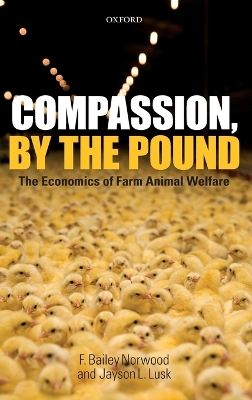For much of human history, most of the population lived and worked on farms but today, information about livestock is more likely to come from children's books than hands-on experience. When romanticized notions of an agrarian lifestyle meet with the realities of the modern industrial farm, the result is often a plea for a return to antiquated production methods. The result is a brewing controversy between animal activist groups, farmers, and consumers that is
currently being played out in ballot boxes, courtrooms, and in the grocery store. Where is one to turn for advice when deciding whether to pay double the price for cage-free eggs, or in determining how to vote on ballot initiates seeking to ban practices such as the use of gestation crates in pork
production or battery cage egg production? At present, there is no clear answer. What is missing from the animal welfare debate is an objective approach that can integrate the writings of biologists and philosophers, while providing a sound and logical basis for determining the consequences of farm animal welfare policies. What is missing in the debate? Economics.
This book journeys from the earliest days of animal domestication to modern industrial farms. Delving into questions of ethics and animal sentience, the authors use data from ingenious consumers' experiments conducted with real food, real money, and real animals to compare the costs and benefits of improving animal care. They show how the economic approach to animal welfare raises new questions and ethical conundrums, as well as providing unique and counter-intuitive results.
- ISBN10 0199551162
- ISBN13 9780199551163
- Publish Date 28 April 2011
- Publish Status Active
- Publish Country GB
- Imprint Oxford University Press
- Format Hardcover
- Pages 424
- Language English
